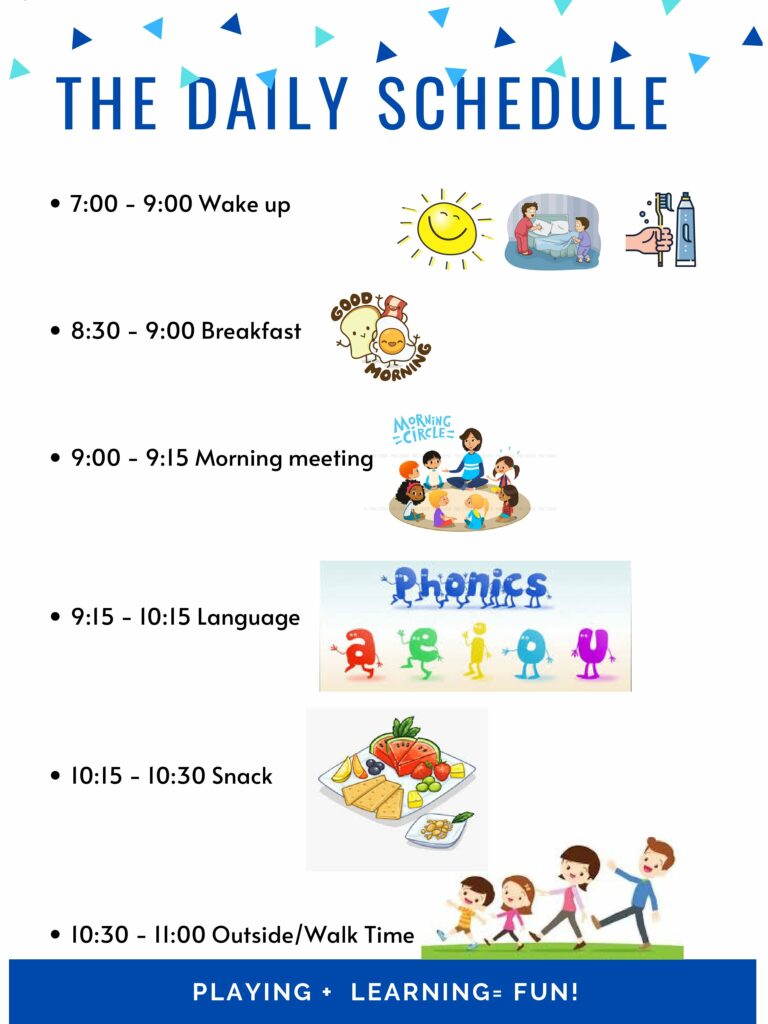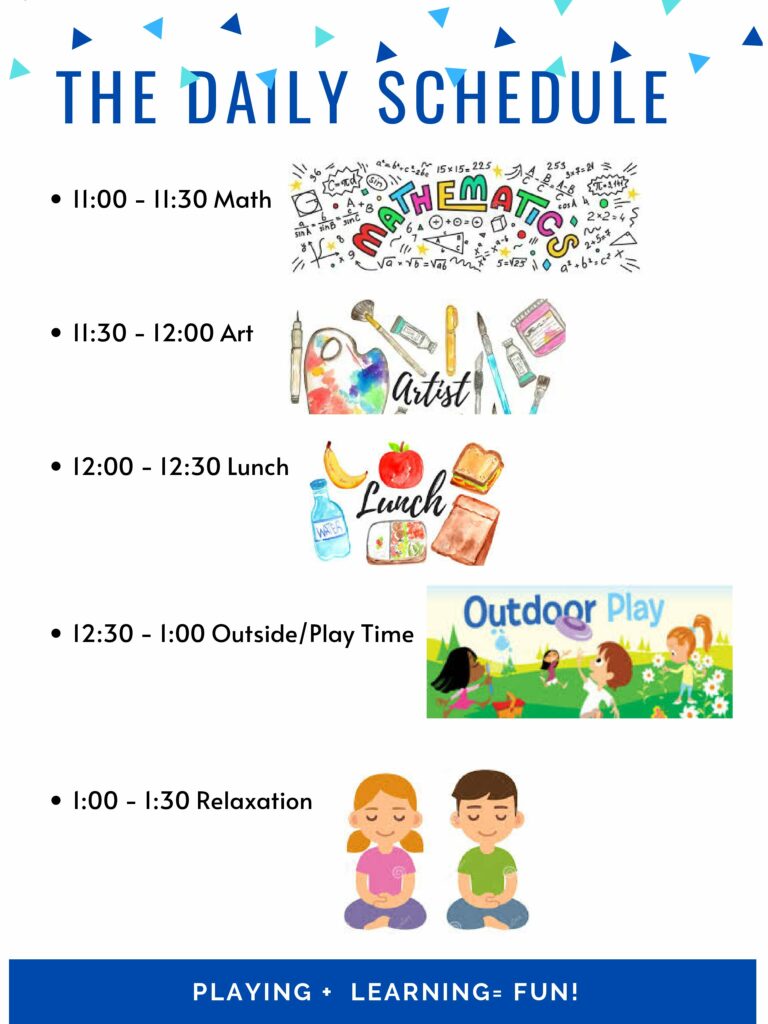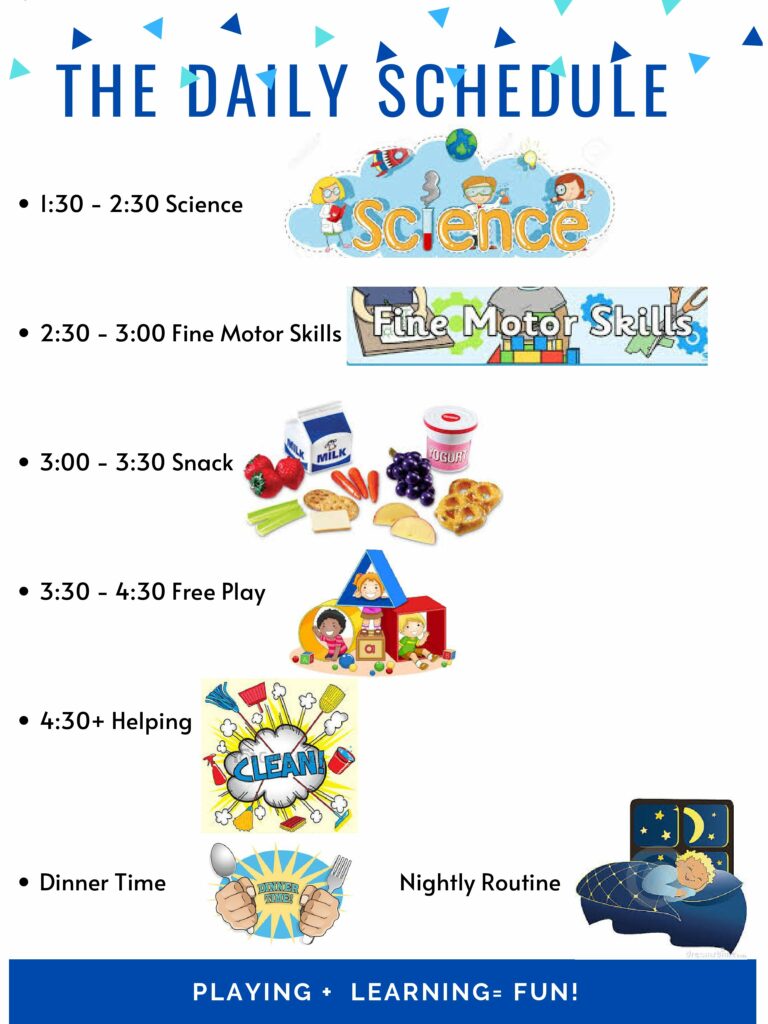The daily schedule includes many different activities to keep your child engaged throughout the day. While the schedule does lay out specific times for all the activities, you know your child best. If they are not enjoying themselves, don't push them. You want to challenge your child, not overwhelm them. Learning is fun!
Language: Children start by learning sounds with actions to go along. Using body movements helps them remember. As they progress, we move on to blending these sounds and before you know it, your child is reading to you.
If your child is new to phonics, start at the beginning of the phonics program, doing one new sound per day.
Math: We start introducing your child to numbers. It is important for them to not just know their numbers, but understand what these numbers mean.
Many daily activities have an "Extension" if your child needs an extra challenge. The rest are easily adaptable to your child's ability.
Art: Creating art expands a child's ability to freely express themselves. Time to let that creativity shine!
Movement: It's time to get those little bodies moving! Movement is important to stay healthy and learn how to control their bodies.
Relaxation: This is the time for your child to learn how to calm their body and mind. Several suggestions are provided each day. Choose the one that best fits your needs that day.
Science: Children love asking questions about EVERYTHING! This is the time for them to explore the world and learn how everything around them works. Hands on experiments are the best way to get them excited and understand what they're learning. Be prepared for all the "why" questions that are about to come your way!
Many daily activities have an "Extension" if your child needs an extra challenge. The rest are easily adaptable to your child's ability.
Fine Motor: Fine motor is all about those little movements that come easily to an adult. Holding a pencil, using scissors, tying a bow--we all had to start somewhere.
Meals: Getting your child involved with meal preparation is a great idea! It gives them hands-on experience with counting, reading and science. It starts them on the path to learning a necessary life skill (we all need to eat!). Many children also become less picky about the food they eat when they are involved in making the food.
It's important to remember that each child moves at their own pace. There will be times they move at a faster pace and times that they move at a slower pace--that's all ok! Follow your child's lead and watch them grow.
Use the images of the schedule to show your child what their day is going to involve. You can print and post it at home so that they can visually follow the routine throughout the day.





